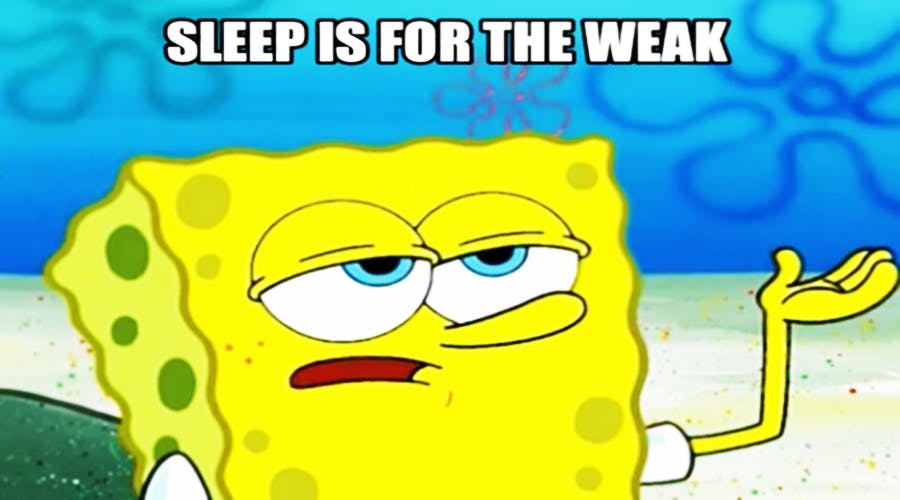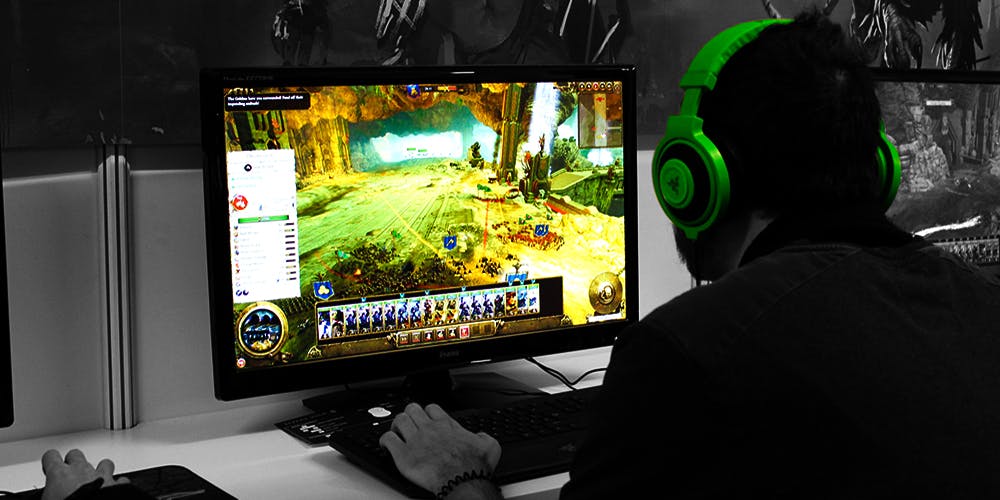

Esports saw its popularity in the past several years. Many universities, and other educational institutions, have since adapted esports to their curricula, treating the discipline in the same way as ordinary sports. We see that some institutions are even set on making esports a profession, raising the potential of future gamers.
Sleep Deprivation
According to a recent study, gamers who spend a lot of time playing or training for tournaments are at risk of cutting down on that vital sleep time.
Sleeping is an essential part of mental and physical wellbeing. Young adults, in particular, need to sleep well. Sleep is a function, which helps them gather the strength and energy, needed for the entire day. The study’s subjects have only slept for 4.5-6 hours each night. This is well below the average 7-9 hours of sleep, the recommended amount for people at this age.
Sleep deprivation is nothing new in Australia. In fact, we see something similar in other places, especially in countries that pay a lot of attention to esports. Flinders University in Adelaide carried out research on players and the number of hours, they dedicate to sleep each night. We can already observe a clear pattern: most players indicate that they sleep less than 7 hours daily. This can obviously inflict on their mood, concentration, and productivity.
Another study, Readibands also focused on the amount of sleep that self-confessed players were getting in their “downtime”. It compared data from almost 80 participants, scattered across the globe: the US, South Korea, and Australia. At this stage, the research is able to show that players usually sleep for 4.5-6.7 hours, between 6 PM and 11 AM. This is a long way away from quality sleep.
In turn, 75% of players report sleep disturbance and anxiety, especially before competitions.
Anything we should be worrying about? Dr. Sophie G Carter is a post-doctoral Research Fellow at the Australian Neuroscience Institute. She has been busy, working on a study on the real impact that sleep deprivation has on players. In her interview, she said that lack of sleep is very stressful for the body. It is not without its effect on our mental state. A deprived sleep cycle can be a cause of serious problems: it can lead to a downward spiral, characterized by lower concentration and productivity.
Without good sleep, most people start to feel dizzy. This when the body sends a clear signal to the brain. It should be an indication that now is the time for rest. For players, it should mean getting up and staying away from the screen. At least for some time. In order to fix the cycle, and get those energy levels back up, most people need to “triple up” on the amount of sleep. For each hour lost, expect to sleep through three hours.
Our advice: stick to regular sleep and you will be better off.
Lifestyle
Another problem: energy drinks, which “shoot up” those caffeine levels..Yes, we have all done it.
Energy drinks are known to be quite unhealthy, with a proven link to diabetes and an increased level of cholesterol. But that is not everything. Most gamers have a sedentary lifestyle. Once the caffeine, and everything that goes into the energy drink, is absorbed by the body. It does not know what to do with it. It is hard to burn that energy off while staying seated, hearing your chunky headset.
Gaming habits are important. They can have a long-term, lasting impact on health. This is exactly why Australian medical professionals, important research institutes and universities are ringing the alarm bells. But it is up to us to ensure our own wellbeing and that we stay within our personal boundaries. As esports continues to find new fans across the world, we should all remember that our mental and physical health is a non-negotiable priority.